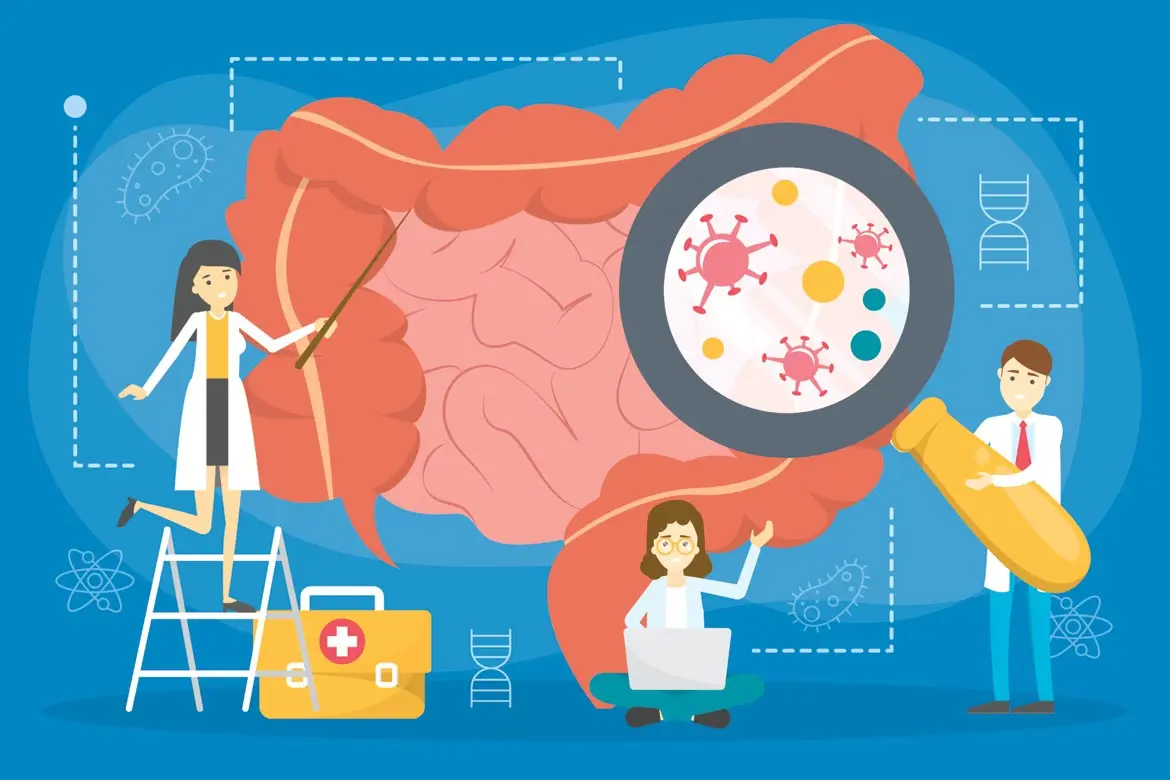Dr Ng Chee Yung
General Surgeon


Source: Shutterstock
General Surgeon
Colorectal cancer is the most prevalent cancer in Singapore, contributing to 1,200 deaths a year. It is the cancer of the large intestine (colon and rectum) and can develop at any age, but it is more common in older adults aged 50 and above.
Polyps (small benign growths) can develop on the inside of the intestinal walls without causing any symptoms, especially early on. These polyps can be present in the intestine for years before becoming cancerous.
Colorectal cancer screening can detect such precancerous polyps so they can be removed before they turn into cancer, thereby preventing its spread to the rest of the body.
In between regular screenings, be mindful of these early warning signs of colorectal cancer:
It is important to note that symptoms usually don't arise in the early stages of colorectal cancer. This is why screening is important for early detection so that you can receive timely treatment.
Generally, it is recommended that you go for colorectal cancer screening around the age of 50. However, those who fall under any of the following risks should get checked earlier.
Some groups of people are at a higher risk of getting colorectal cancer than others.
1. Age
Colorectal cancer is more common in people above the age of 50. As you get older, there is a higher chance that mutations in your body's cells evade the immune system and develop into cancer.
2. Family history of colorectal cancer
If one of your blood relatives has had colorectal cancer, you have a higher chance of developing it yourself. In fact, around a third of people who develop colorectal cancer have other family members who have had it. There are some genetically inherited syndromes that confer a significantly higher risk (up to 20 times) of developing colorectal cancer.
3. Chronic inflammatory diseases
Having intestinal conditions like Inflammatory Bowel Disease (IBD), ulcerative colitis and Crohn's disease may also increase the likelihood of developing colorectal cancer.
In fact, IBD is known to be a significant risk factor in the development of colorectal cancer. According to an article in World Journal of Gastroenterology, chronic inflammation is believed to promote carcinogenesis, which is the start of cancer formation.
4. Low fibre, high-fat diet
Low-fibre diets have been linked to colon cancer. A diet rich in high-fibre food decreases your overall calorie intake and helps you maintain a healthy weight. This is vital to reducing cancer risks.
5. Physical inactivity
A study by JNCI: Journal of the National Cancer Institute found that physical inactivity has been linked with an increase in the risk of certain cancers, including colorectal cancer.
Spending large amounts of time sitting down can still be detrimental even for people who exercise regularly. The risk of developing colorectal cancer increased by 8% with each 2-hour increase in sitting time.
6. Diabetes
Insulin resistance, which is a feature in diabetics, can cause you to have a higher chance of developing colorectal cancer.
7. Obesity
Being overweight doesn't mean that you will definitely develop cancer, but it does make you more likely to get cancer than if you were of a healthy weight.
According to Gut journal, around 11% of colorectal cancer cases in Europe were linked to obesity and being overweight. Data also suggests that obese men have a 30 – 70% increased risk of developing colon cancer.
8. Smoking
Long-term cigarette smoking is associated with colorectal cancer, even after taking into consideration other risk factors. According to a study by the American Association for Cancer Research (AACR), the incidence of colorectal cancer was significantly higher in current and former smokers.
9. Alcohol
The more you drink, the greater the risk of getting cancer. Even moderate drinking was shown to increase the risk of colorectal cancer. Studies have shown a positive association between alcohol consumption and the risk of polyp formation. The metabolism of alcohol in the body involves ethanol conversion that could have cancerous effects on the colon.
Here are some of the prevention measures that can help reduce the risk of colorectal cancer.
1. Eat a healthy, well-rounded diet
Vitamins, minerals, fibre and antioxidants are important components of a healthy diet to prevent cancer. Including fruits and vegetables in your diet is a good way to absorb these nutrients and reduce your risk of developing cancer. Fruits, vegetables, whole grains and legumes can be eaten to increase your fibre intake.
2. Reduce alcohol consumption
Limit the amount of alcohol you drink. Your chances of developing cancer are significantly larger if you have more than four drinks a day. Having up to 2 drinks for men, and 1 drink for women each day counts as moderate drinking.
One 'drink' in this instance would refer to:
Reducing alcohol intake may be difficult especially if you are a heavy drinker. Your doctor or counsellor may be able to help you in this. Even your friends and family members can be a source of support if you are trying to cut out alcohol from your life.
3. Quit smoking
Cigarettes contain carcinogens that increase your risk of developing any form of cancer. Nicotine in cigarettes can actually be as addictive as drugs like heroin and cocaine, making it difficult to quit. Around one-fifth of smokers will go through withdrawal symptoms upon quitting. Consult your doctor on a plan to quit smoking and cope with Nicotine Withdrawal Symptoms.
4. Increase physical activity
Reducing the time spent sitting down may be useful in preventing cancer. According to the National Cancer Institute, exercise increases antioxidant levels and helps repair DNA. It can also decrease inflammation and boost your immune system.
Seek medical treatment immediately from the nearest Urgent Care Centre (UCC) if you are experiencing